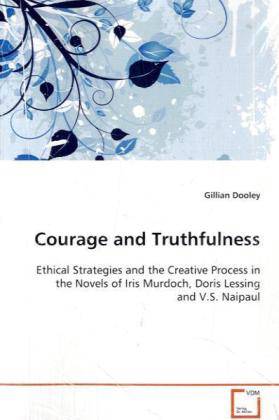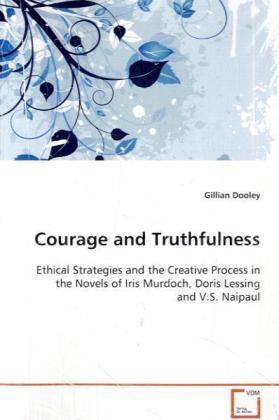
Bedankt voor het vertrouwen het afgelopen jaar! Om jou te bedanken bieden we GRATIS verzending (in België) aan op alles gedurende de hele maand januari.
- Afhalen na 1 uur in een winkel met voorraad
- In januari gratis thuislevering in België
- Ruim aanbod met 7 miljoen producten
Bedankt voor het vertrouwen het afgelopen jaar! Om jou te bedanken bieden we GRATIS verzending (in België) aan op alles gedurende de hele maand januari.
- Afhalen na 1 uur in een winkel met voorraad
- In januari gratis thuislevering in België
- Ruim aanbod met 7 miljoen producten
Zoeken
Courage and Truthfulness
Ethical Strategies and the Creative Process in the Novels of Iris Murdoch, Doris Lessing and V.S. Naipaul
Gillian Dooley
Paperback | Engels
€ 77,95
+ 155 punten
Omschrijving
The novels of Iris Murdoch, Doris Lessing and V.S.
Naipaul are
studied in the light of statements they have made in
essays and
interviews regarding the ethical implications of
writing fiction. The
purpose of this research is to examine the nature of
the problems
they have identified in the creative process of
writing and the
strategies each has used to address the ethical
problems they
perceive, and to assess the relative success of their
chosen methods.
It can be seen that, although for each of them the
quest for truth is
their highest concern, they have each developed very
different ways
of dealing with the problems they believe are
connected with writing
truthfully, and in addition, they have defined the
particulars of these
problems in different ways. It is concluded that the
more carefully
examined and individually defined these problems are,
the greater
the internal consistency and credibility which is
achieved by the
strategies they have developed to address the
problems, and the
more their work has developed in the course of their
careers.
Naipaul are
studied in the light of statements they have made in
essays and
interviews regarding the ethical implications of
writing fiction. The
purpose of this research is to examine the nature of
the problems
they have identified in the creative process of
writing and the
strategies each has used to address the ethical
problems they
perceive, and to assess the relative success of their
chosen methods.
It can be seen that, although for each of them the
quest for truth is
their highest concern, they have each developed very
different ways
of dealing with the problems they believe are
connected with writing
truthfully, and in addition, they have defined the
particulars of these
problems in different ways. It is concluded that the
more carefully
examined and individually defined these problems are,
the greater
the internal consistency and credibility which is
achieved by the
strategies they have developed to address the
problems, and the
more their work has developed in the course of their
careers.
Specificaties
Betrokkenen
- Auteur(s):
- Uitgeverij:
Inhoud
- Aantal bladzijden:
- 216
- Taal:
- Engels
Eigenschappen
- Productcode (EAN):
- 9783639128376
- Uitvoering:
- Paperback
- Afmetingen:
- 150 mm x 220 mm
- Gewicht:
- 340 g

Alleen bij Standaard Boekhandel
+ 155 punten op je klantenkaart van Standaard Boekhandel
Beoordelingen
We publiceren alleen reviews die voldoen aan de voorwaarden voor reviews. Bekijk onze voorwaarden voor reviews.









